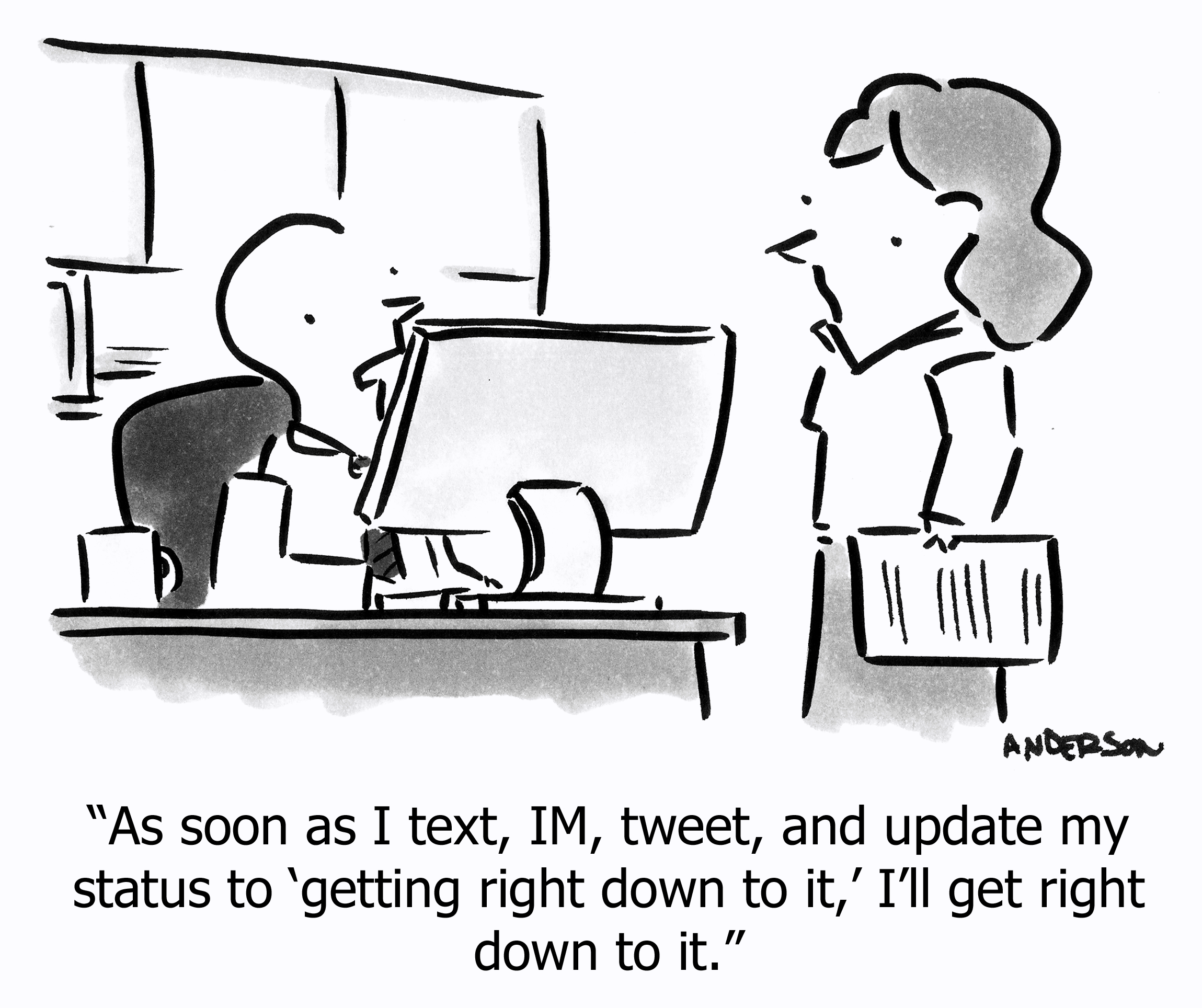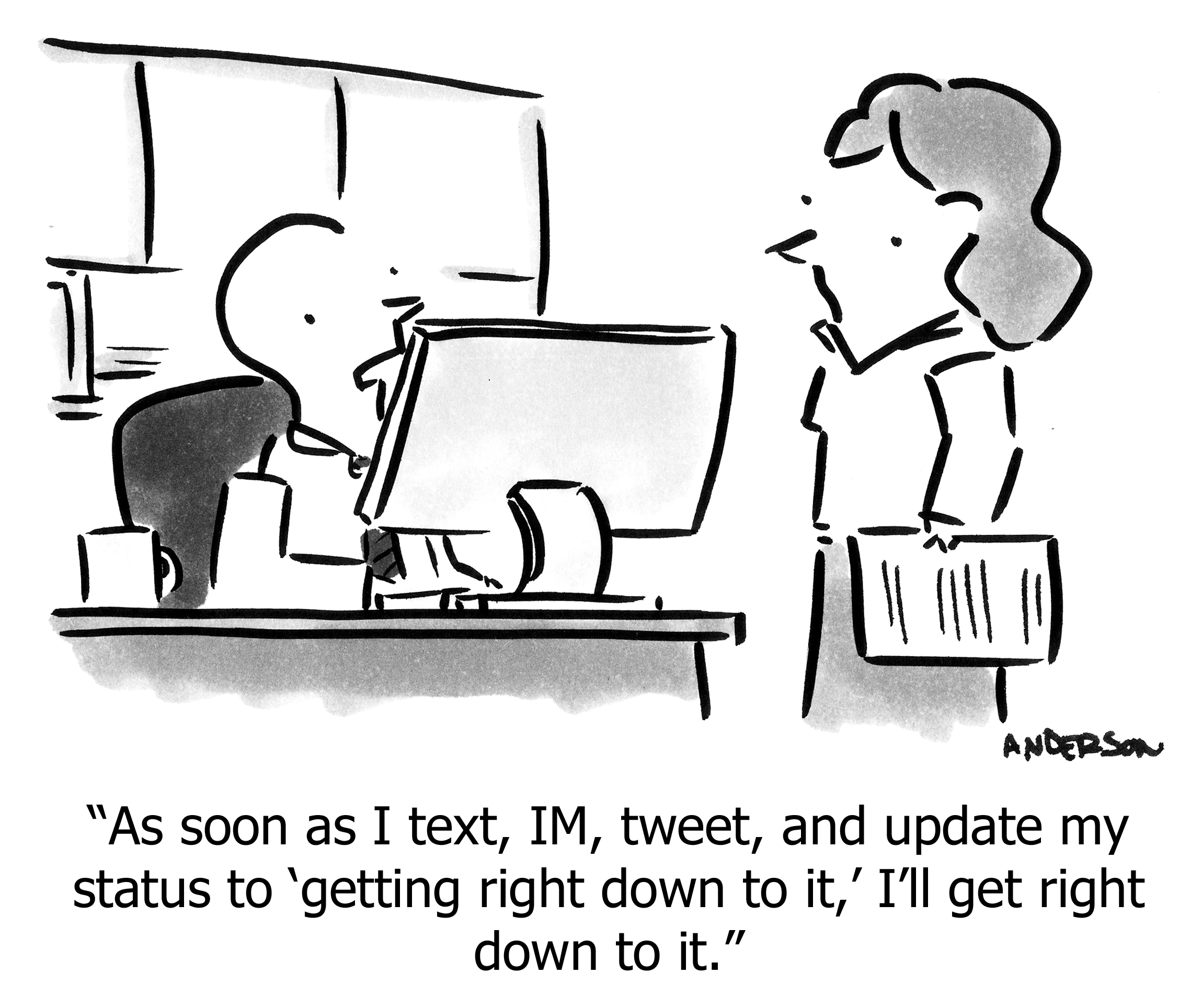Procrastinate for Success!
I’m a habitual procrastinator. It’s a fundamental component of my psyche. It’s also an important factor in success at running a small business. Here’s why.
In a small company you’re overwhelmed with things to do. At Smart Bear we still have a dense whiteboard full of marketing ideas we don’t have time for, dozens of index cards with cool features we don’t have time to implement, and 7,000 open issues and minor feature requests in Fogbugz we don’t even have time to glance at.
And that’s now, with five years of work and fifteen employees. It was hundred times worse at the beginning with just one person doing all the work.
This one person must have worked tirelessly. (He did.) This person must have been willing to do every kind of job. (He was.) This person must have been hyper-organized, allowing nothing to slip through the cracks, aware of how to advance the strategy while side-stepping obstacles, spending precious time on only the most high-valued tasks, not just working on whatever this person felt like at the time. (Ummmmmm… [looks sheepishly at toes]… not so much.)
“Don’t put off ’till tomorrow what you can put off ’till the day after tomorrow.” Thanks, Mark, for guiding the overwhelmed.
You really do have too much to do. Prioritization might be best in theory, but plain, gut-feel procrastination might be the right way to go.
Many things blow over if you just ignore them. The big feature you got worked up about yesterday seems unimportant in the cold light of today. A feature a customer says is vital turns out to be something suggested by their intern, not actually stopping the sale. An apparent fundamental bug turns out to be a misconfiguration. An important meeting turns out to be unimportant. The email you didn’t answer resolved itself.
Besides, a lot of those tasks aren’t as important as you think. Even something critical like accounting can be put off. Late fees, lost receipts, penalties from the IRS: financial burdens more than compensated by additional revenue gained by signing up one more customer.
Financial tasks in particular also have the property of being faster to do in a big sweep rather than as they trickle in. It’s faster to enter 100 receipts into Quickbooks once a month than to enter three a day. Little tasks like that still have context-switch overhead, plus you get fast at typing and keyboard shortcuts when you’re doing the same action hundreds of times in a row.
Companies succeed because they got just a few things really right, not because they had no problems, no bugs, no design flaws, and perfect books. By spending less time on those time-sucking details, you can spend more time on those 1-2 most important things. Which is how you win.
Finally, sometimes you’ve got to let yourself do fun stuff at the expense of priorities. Most of what you do in a little company isn’t what you enjoy doing; it’s easy to become frustrated and burned-out. So sometimes you need to allow yourself to recover with plain fun. Whatever the cost of putting off duties, burn-out is even more costly.
Yeah I know I’m rationalizing. But you can’t do everything, so don’t.
And don’t beat yourself up over it.
https://longform.asmartbear.com/procrastinate/
© 2007-2026 Jason Cohen
 @asmartbear
@asmartbear






